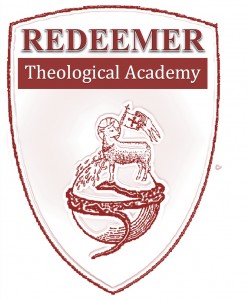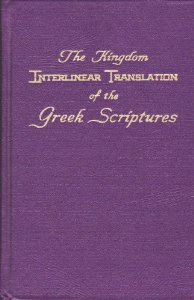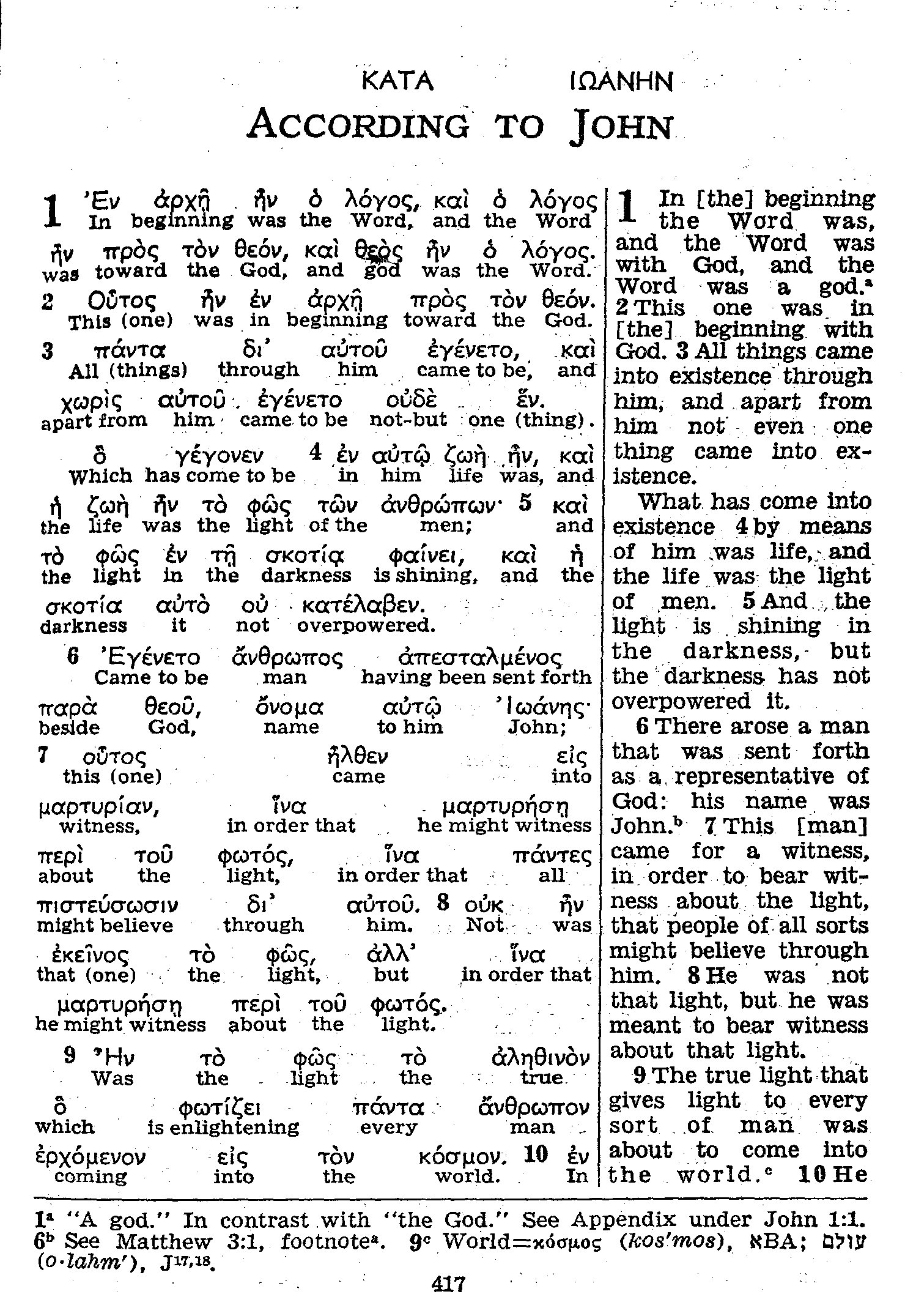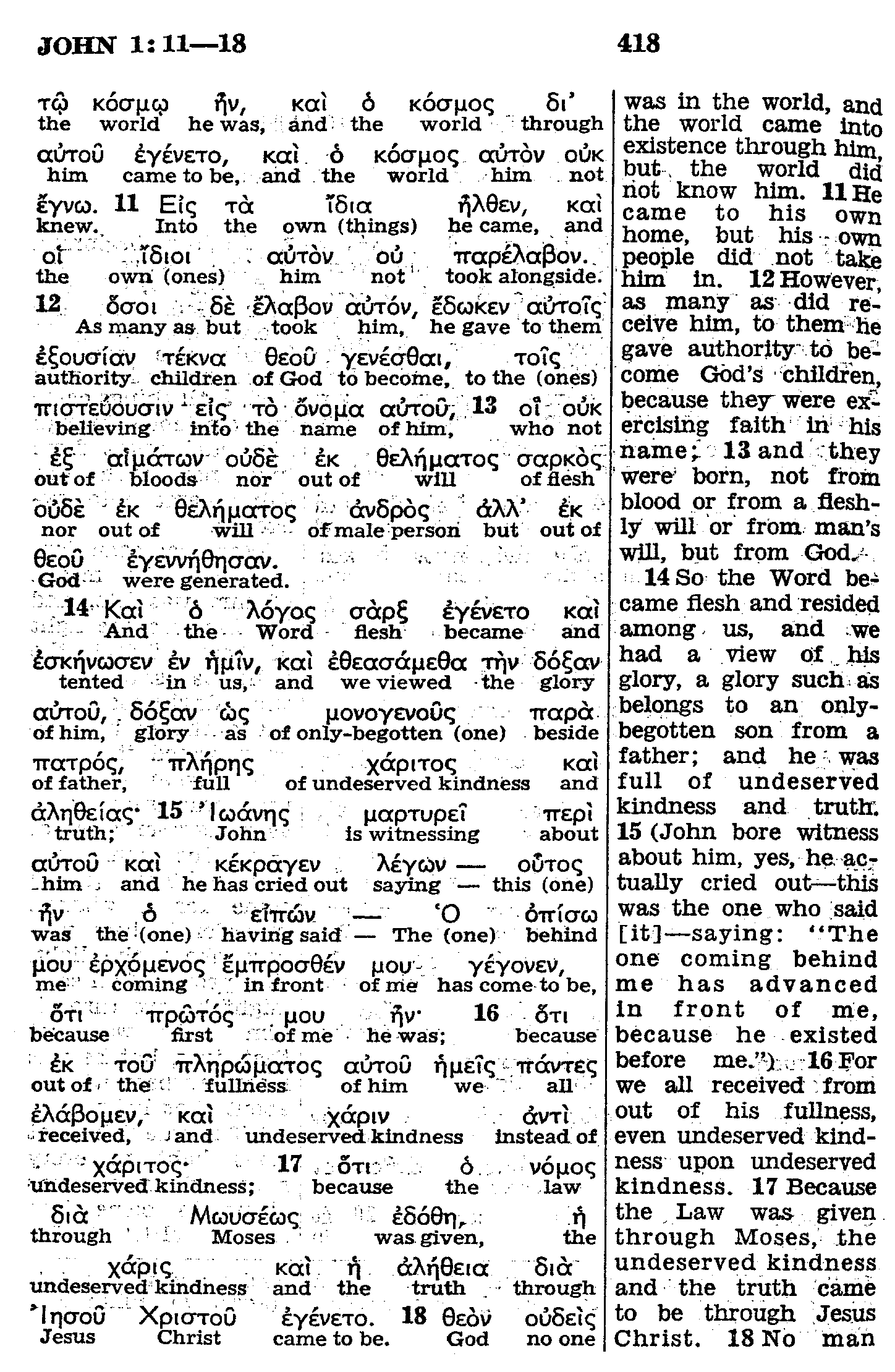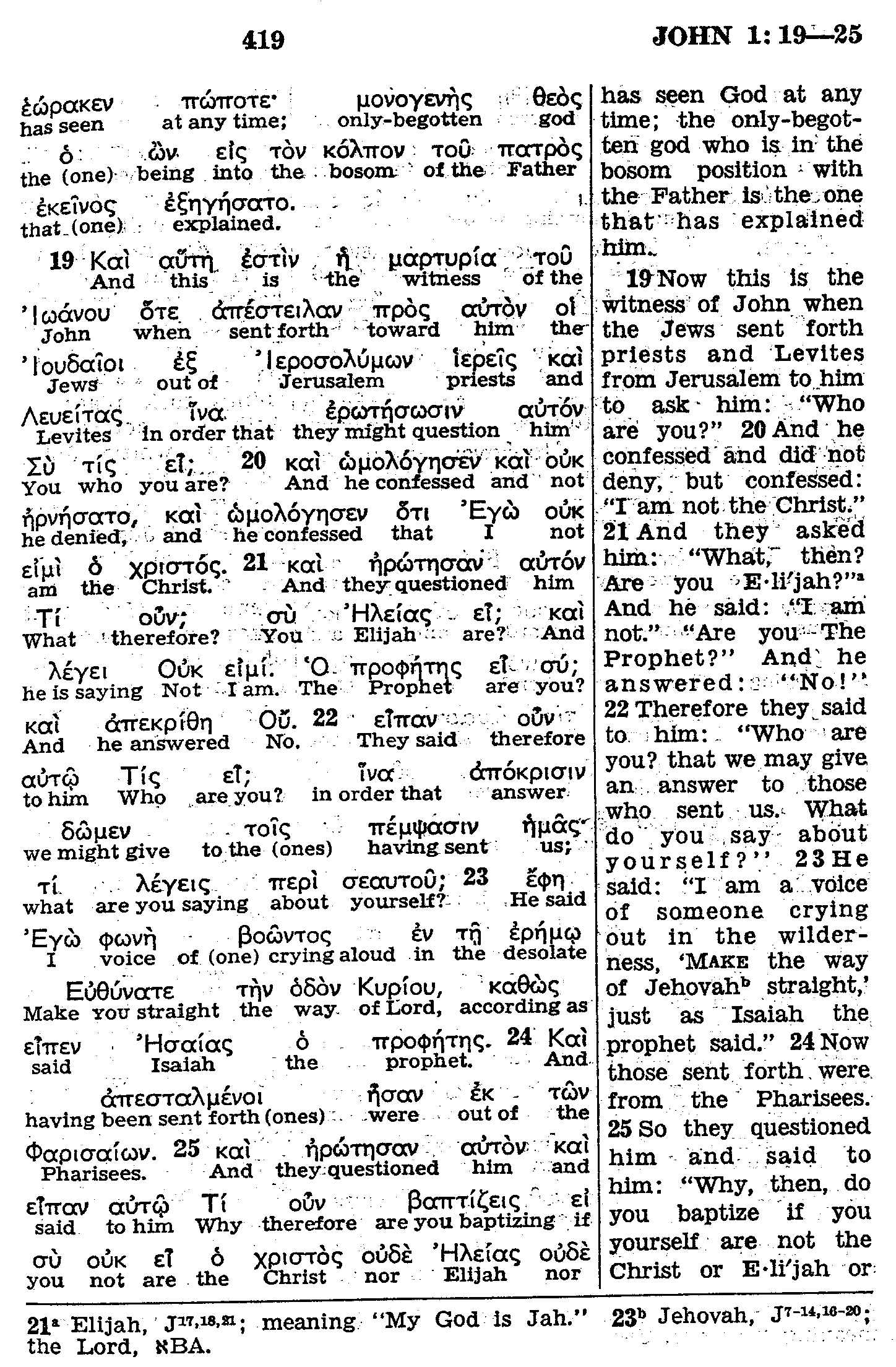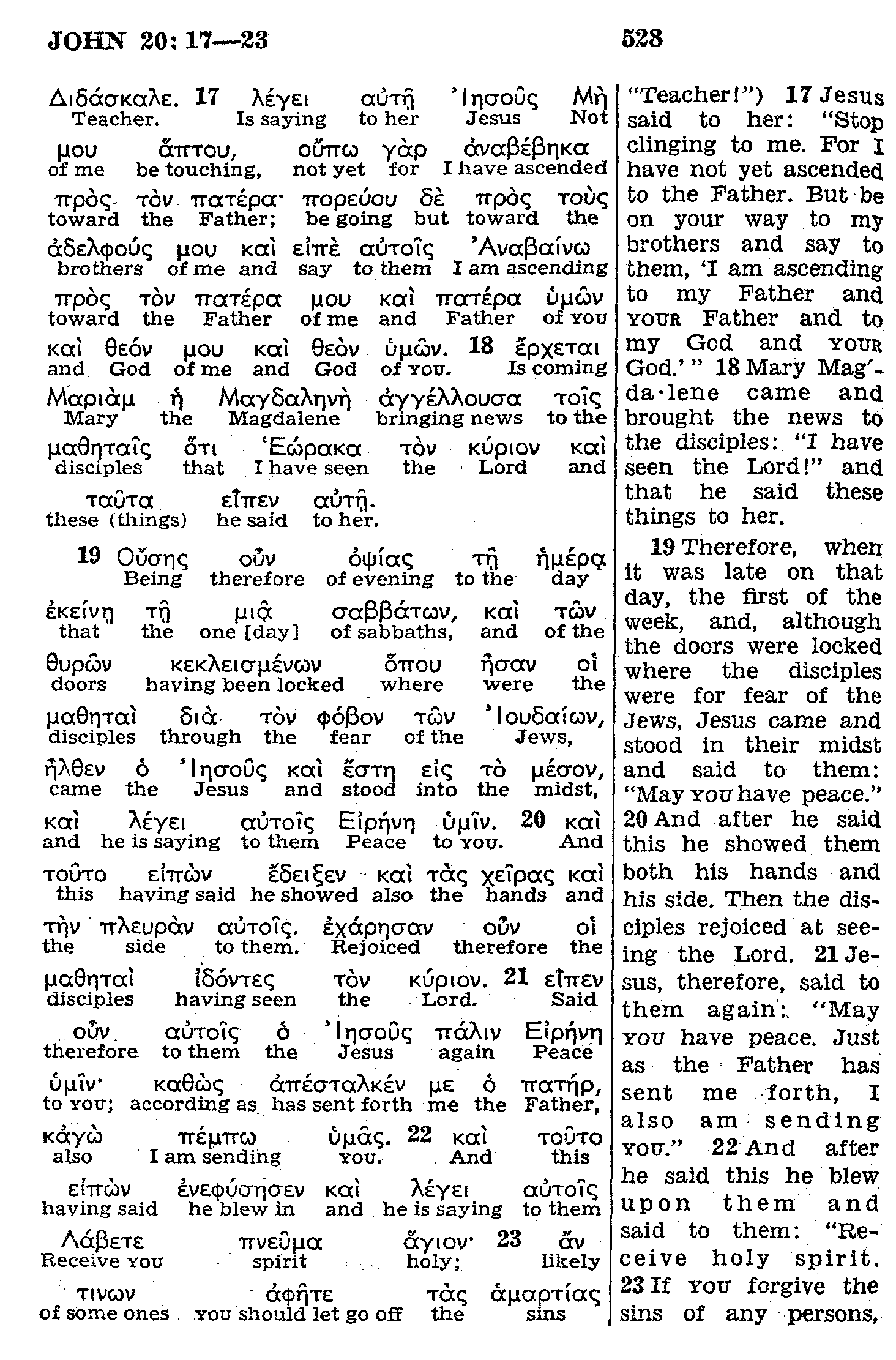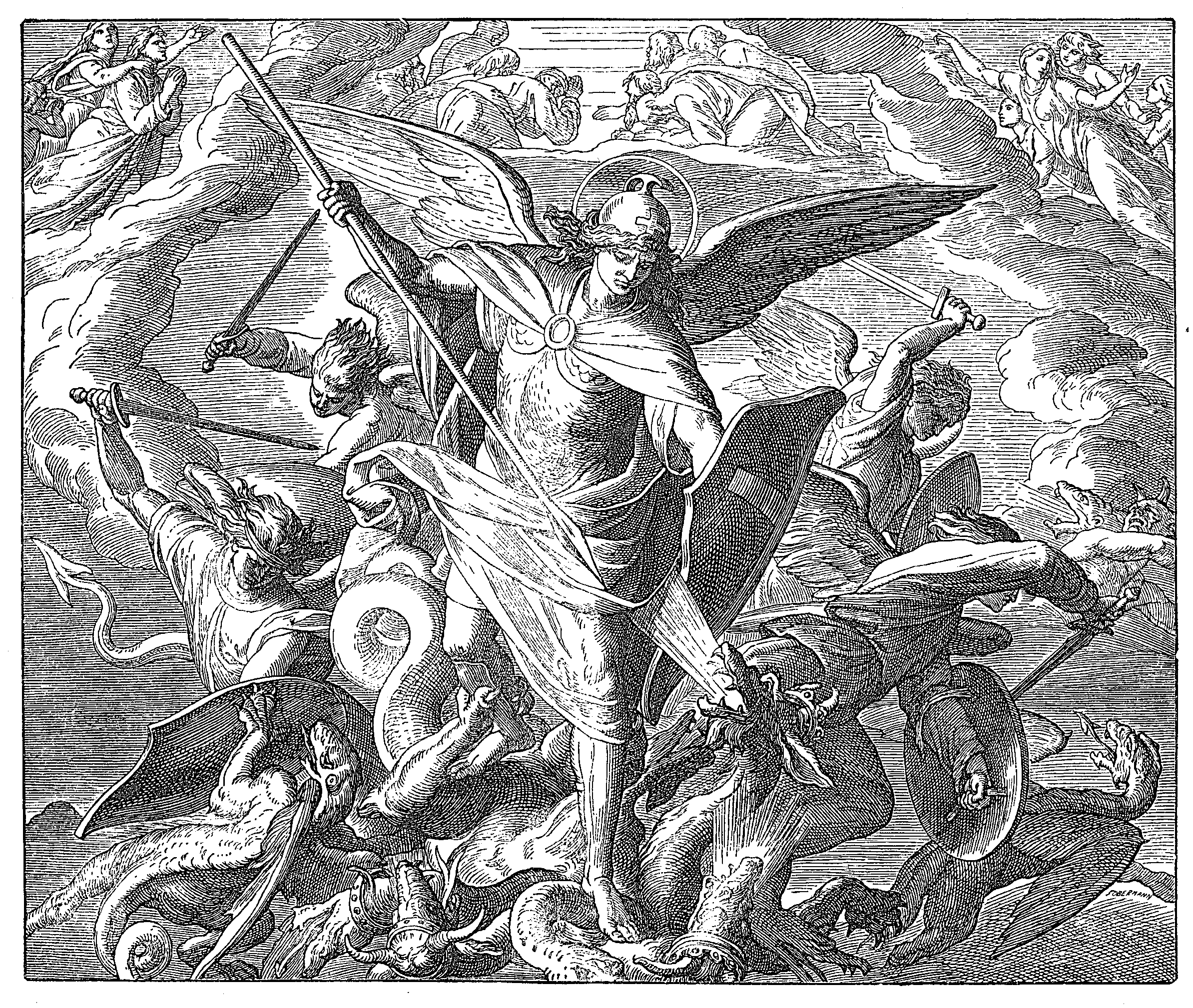 Who is Michael? What Does the Bible Really Teach? To be clear, the Watchtower organization does not really teach what the Bible really teaches. When the Watchtower
Who is Michael? What Does the Bible Really Teach? To be clear, the Watchtower organization does not really teach what the Bible really teaches. When the Watchtower
teaches its witnesses that the Bible “indicates” or that the Bible “suggests”, a certain teaching, let us be clear that suggesting or indicating is not the same thing as teaching. Beware of such ambiguous language.
If the Bible teaches a truth, then it is not suggesting or indicating a truth. Beware of the teachings of the Watchtower organization that tries to support their own false doctrines by saying that there are “Scriptural reasons” to believe what the Watchtower teaches, or we can “draw a conclusion” based upon a text of Sacred Scripture that agrees with the conclusions of the Watchtower, or “it is logical” to conclude that the logic of the Watchtower is correct.
For example, the Watchtower organization teaches that the Michael the Archangel is Jesus. Yet, nowhere in the Bible is it every taught that Jesus and Michael are the same person. Nowhere does Jesus ever say, “I am Michael.” There is not a single verse in the Sacred Scriptures that ever teach that Jesus is Michael.
But the Watchtower teaches that Jesus is Michael and to deceive its followers it teaches them that there are “Scriptural reasons” in which “conclusions can be drawn” because it is “logical to conclude” that the Bible “indicates” and “suggests” that Jesus is Michael even though it is never taught clearly.
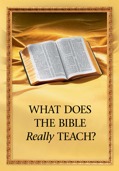
The Watchtower teaching on Michael can be found in there answer to the question “Who is Michael?” in the book “What Does the Bible Really Teach?” (here) The Watchtower states,
“Likewise, the Bible indicates that Michael is another name for Jesus Christ, before and after his life on earth. Let us consider Scriptural reasons for drawing that conclusion.” (here)
Notice the language of “indicates.” If the Bible teaches that Michael is another name for Jesus, then why not say that the Bible “teaches” rather than “indicates”? The Watchtower goes on to give “Scriptural reasons for drawing that conclusion” as follows:
“At times, individuals are known by more than one name. For example, the patriarch Jacob is also known as Israel, and the apostle Peter, as Simon. (Genesis 49:1, 2; Matthew 10:2) Likewise, the Bible indicates that Michael is another name for Jesus Christ, before and after his life on earth. Let us consider Scriptural reasons for drawing that conclusion.” (here)
However, when you look to the above examples from the Bible, it does not “indicate” or “suggest” that Israel could be another name for Jacob or that Peter could be another name for Simon. Instead, the Bible teaches that Israel is another name for Jacob and Peter is another name for Simon. In Genesis chapter thirty-two we read, “Then he said, “Your name shall no longer be called Jacob, but Israel, for you have striven with God and with men, and have prevailed.” Then Jacob asked him, “Please tell me your name.” But he said, “Why is it that you ask my name?” And there he blessed him.” (Genesis 32:28–29, ESV) And again, in Matthew sixteen we read, “And Jesus answered him, “Blessed are you, Simon Bar-Jonah! For flesh and blood has not revealed this to you, but my Father who is in heaven. And I tell you, you are Peter, and on this rock I will build my church, and the gates of hell shall not prevail against it.” (Matthew 16:17–18, ESV)
The Watchtower cannot produce a single verse in which it is taught that Michael is another name for Jesus. In fact, Michael is only talked about in five verses in the entire Bible (Daniel 10:13, 21; 12:1; Jude 9; Revelation 12:7) None of these verse teach that Michael is another name for Jesus.
The Watchtower organization teaches,
“God’s Word refers to Michael “the archangel.” (Jude 9) This term means “chief angel.” Notice that Michael is called the archangel. This suggests that there is only one such angel.” (here)
In the Greek, the name Michael has a definite article and we know how significant definite article is for the Watchtower when they want to prove a point (see Watchtower Deception and the Out-of-Print Greek Interlinear). However, they failed to reveal that “the Michael” does not suggest that here is only one Michael. In fact, there are more than one named Michael in the Bible (Num. 13:13; 1 Chron. 5:13-14, 6:40, 7:3, 8:16, 12:20, 27:18; 2 Chron. 21:2; Ezra 8:8). Stating, “the archangel” does not teach that there is only one such angel or that Michael is Jesus. For this reason the Watchtower says that it “suggests.”
At the same time, the modifying word “chief” does not mean only one. Zacchaeus is called a “chief tax collecter,” but that does not mean that he is the only one in the entire Roman Empire (Luke 19:1-2). Likewise, there was more than one “chief priest.” It was the “chief priests” (in the plural) who brought charges against Jesus.
In contrast to the Bible, the Watchtower goes on to teach,
“Regarding the resurrected Lord Jesus Christ, 1 Thessalonians 4:16 states: “The Lord himself will descend from heaven with a commanding call, with an archangel’s voice.” Thus the voice of Jesus is described as being that of an archangel. This scripture therefore suggests that Jesus himself is the archangel Michael.” (here)
Again, if we actually read the passage, we will see that the Bible does not teach that Jesus Himself is the Archangel Michael. For this reason, the Watchtower has to say that the text “suggests” it. The text itself says, “For the Lord himself will descend from heaven with a cry of command, with the voice of an archangel, and with the sound of the trumpet of God. And the dead in Christ will rise first.” (1 Thessalonians 4:16, ESV) Notice what the text actually teaches. It teaches that Jesus will cry out “with the voice of an archangel.” With the Watchtower obsession with the definite article, it should be not that in the Greek the text reads “an archangel” and not “the archangel.” Likewise, it should be brought to your attention that in the Greek there is no definite article in front of the word theos (god). Therefore, if the Watchtower were consistent with their rule about the definite article regarding the difference between “a god” and “the God,” they would have to translate this passage “a trumpet of a god.”
Finally the Watchtower ends on this note teaching,
“Michael is the Leader of an army of faithful angels. Revelation also describes Jesus as the Leader of an army of faithful angels. (Revelation 19:14-16) And the apostle Paul specifically mentions “the Lord Jesus” and “his powerful angels.” (2 Thessalonians 1:7; Matthew 16:27; 24:31; 1 Peter 3:22) So the Bible speaks of both Michael and “his angels” and Jesus and “his angels.” (Matthew 13:41) Since God’s Word nowhere indicates that there are two armies of faithful angels in heaven—one headed by Michael and one headed by Jesus—it is logical to conclude that Michael is none other than Jesus Christ in his heavenly role.” (here)
Again, notice that the Watchtower wants their followers to use their logic. The man-made organization puts forth the assertion that there is only one army of faithful angels in heaven and then teaches “it is logical to conclude” that Michael is Jesus because they both have the same army of faithful angels in heaven. Well to use the logical conclusion of the Watchtower, then their witnesses should “logically conclude” that Jesus is Jehovah since there is only one army of angels in heaven and Jehovah is the God of hosts.
The Bible teaches us in Psalm 103, “Bless Jehovah, O you his angels, you mighty ones who do his word, obeying the voice of his word! Bless Jehovah, all his hosts, his ministers, who do his will!” (Psalm 103:20–21) In Psalm 148 we are taught, “Praise JEHOVAH ! Praise JEHOVAH from the heavens; praise him in the heights! Praise him, all his angels; praise him, all his hosts!” (Psalm 148:1–2, ESV) God’s angels are commanded to worship and praise JEHOVAH alone. In Hebrews chapter one, regarding Jesus, the Father commands all the angels saying, “Let all God’s angels worship him.”” (Hebrews 1:6, ESV) Michael is one of the angels that are commanded by the Father to worship Jesus.
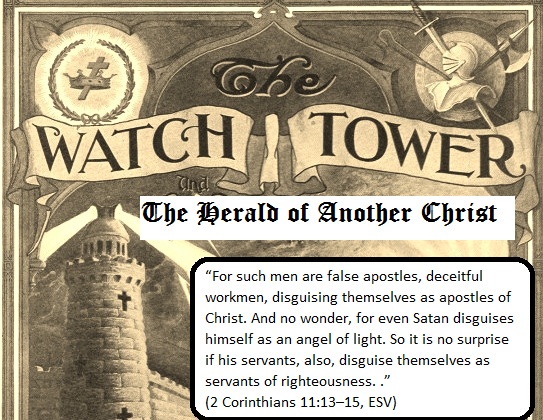
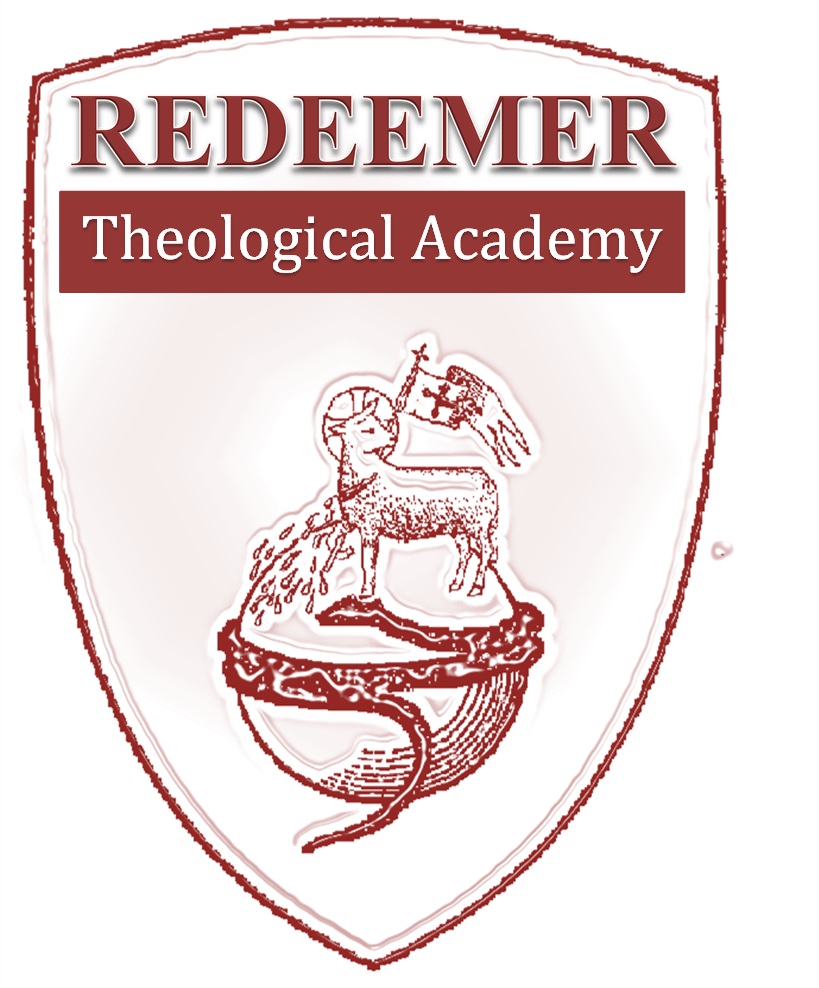 [audio:https://redeemertheologicalacademy.org/wp-content/uploads/2013/12/The-Revealed-Mystery-of-the-Trinity-in-the-Old-and-New-Testaments-Part-4.mp3|titles=The-Revealed-Mystery-of-the-Trinity-in-the-Old-and-New-Testaments-Part-4]
[audio:https://redeemertheologicalacademy.org/wp-content/uploads/2013/12/The-Revealed-Mystery-of-the-Trinity-in-the-Old-and-New-Testaments-Part-4.mp3|titles=The-Revealed-Mystery-of-the-Trinity-in-the-Old-and-New-Testaments-Part-4]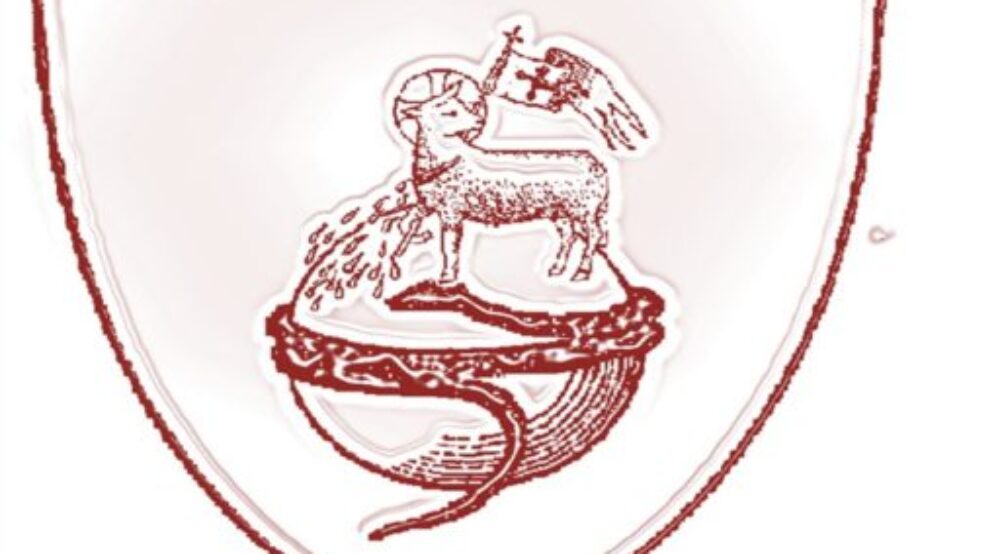
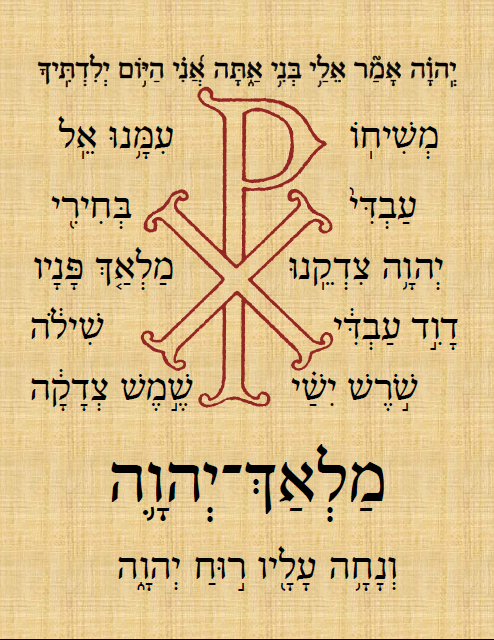



 Who is Michael? What Does the Bible Really Teach? To be clear, the Watchtower organization does not really teach what the Bible really teaches. When the Watchtower
Who is Michael? What Does the Bible Really Teach? To be clear, the Watchtower organization does not really teach what the Bible really teaches. When the Watchtower

